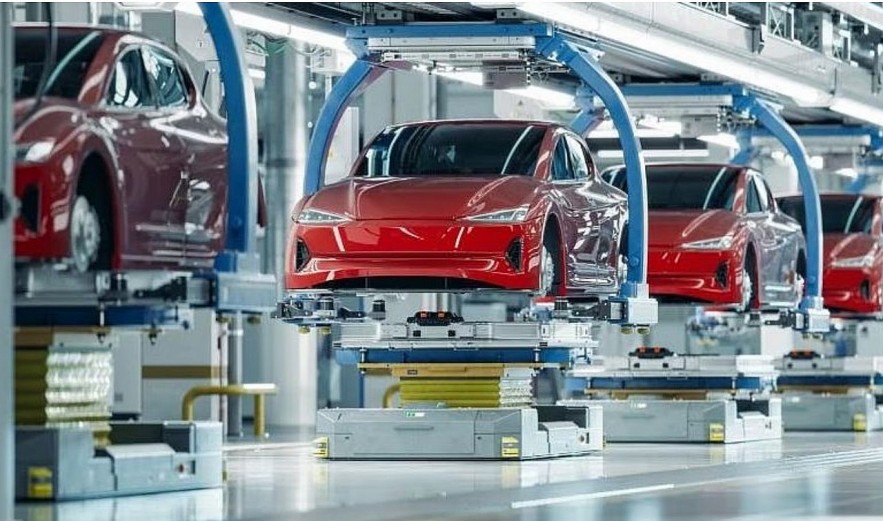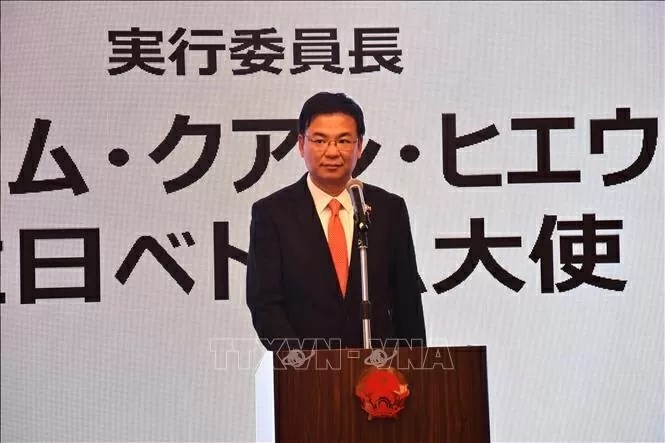India’s Next Employment Boom is Coming from the Electric Vehicle Industry
 |
India's automotive sector is already a global powerhouse, ranking third worldwide. Now, its electric vehicle (EV) ecosystem is experiencing explosive growth! Experts predict a meteoric rise, projecting the industry to surge from a US$ 3.21 billion valuation in 2022 to a staggering US$ 113.99 billion by 2029. This represents an impressive compound annual growth rate (CAGR) of 66.52%, signaling a revolution in Indian transportation.
The EV boom in India isn't just about impressive sales numbers; it's a powerful engine for job creation and a catalyst for a greener future. By 2030, the EV sector is projected to generate a staggering 5 million direct and 30 million indirect jobs, transforming the national job market. This expansion is also driving the growth of "green jobs" – employment that directly benefits our planet by fostering renewable energy, promoting energy efficiency, and championing sustainable development. India's EV revolution is thus contributing to both economic prosperity and environmental well-being.
On the service front, the industry has highly specialized needs, like optimization of intelligent charging infrastructure and better vehicular safety, leading to a growing hunger for highly skilled professionals. These high-demand skills include but are not limited to model-based algorithm experts, Ionic developers, UI/UX engineering, cloud computing, embedded electronics, data analytics, and battery management systems. The role of data scientists is to enhance and augment safety by identifying potential hazards and real-time decisions for safe driving in autonomous vehicles in EVs, which rely on vast amounts of data from sensors, cameras, and lidar systems.
On the production front, the Indian EV battery market is projected to surge from US$ 16.77 billion in 2023 to an appreciable US$ 27.70 billion by 2028. With booming total investments locked into this industry and highly favorable government policy under Faster Adoption and Manufacturing of (Hybrid) and Electric Vehicles (FAME) schemes, India is fast emerging as a global hub for auto component sourcing, with a strong export orientation (exporting one-fourth of its production per annum).
Though the current number of jobs in the EV sector is lower than those in the internal combustion engine (ICE) car sector, the situation is expected to flip in the near future. With the rampant adoption of green technology and green jobs, though there would be some disruption in traditional job profiles, many new job profiles are expected to open up avenues. A re-alignment of the demand and supply of employment space in the green industry accompanies the rise in demand and supply of EVs. As indicated above, the number of job profiles in the EV space is expected to be about five percent higher compared to the traditional ICE vehicle ecosystem, though they would be more on the heavier side of worker’s skill requirements.
The paucity of EV-specific courses or engineering degrees makes it difficult to find pre-skilled or pre-trained professionals. Thus, acknowledging the need for equipping human resources with industry-relevant skills, on the academic front, eminent national institutions like the Indian Institutes of Technology (IIT) Delhi, IIT-Bombay, IIT-Madras, and Delhi Technical University have started offering Master’s in Technology degrees in electric mobility. This, in turn, prepares a highly skilled workforce with technical knowledge in multi-dimensional aspects of the EV market ranging from manufacturing to service delivery across its value chain. Along with imparting market-focused training, the educational institutions are also providing incubation facilities for startups, helping engineers focus on the design and development of EVs and their components.
Moreover, it is suggested that companies adopt a two-pronged hiring strategy. First, they can recruit experienced automotive engineers with EV and sustainability expertise. Secondly, they can nourish extant talent through on the job upskilling and reskilling.
On the startup front, India is gaining massive success, with the small and large EV startups estimating a market size of $110.74 Bn by 2029. Domestic EV startups like Ather Energy, Altigreen, BluSmart, and Exponent Energy, to name a few, are increasingly coming up with green mobility solutions, energy infrastructure, commercial mobility, and battery management systems.
In the recent budget for fiscal year 2025-26, the Indian government has reduced customs duty on 35 capital goods/machinery used in the manufacturing of lithium-ion batteries for EVs. This, in turn, will help in reducing input costs, deepen value addition, promote export competitiveness, correct inverted duty structure, and boost domestic manufacturing of EVs. The industry also stands to produce a multiplier effect, with EV companies catalyzing the growth of the FMCG and logistics sector.
The strong political will, as evident from the plethora of green economy related policy initiatives, a highly skilled workforce, and a vast market with both strong production and consumption avenues, the Indian EV sector, with various projections of copious employment opportunities, seems to be on the path of fruition. With the consistent structural change in place and successive increases in the EV-specialized workforce, it is an interesting phenomenon to observe how India achieves the status of one of the biggest generators of green jobs.




